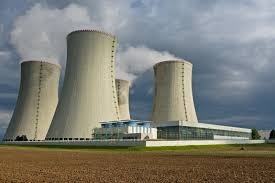 Nuclear Energy Plant
Nuclear Energy PlantABUJA/Nigeria: Ahead of the Bonn Climate Conference (SB62) set to open on June 16 in Germany, a coalition of twelve civil society organisations from Africa, Europe, and Russia has raised the alarm over what they describe as a dangerous surge in African countries turning to nuclear energy as part of their energy mix. The group’s joint report, The Alarming Rise of False Climate Solutions in Africa. The Nuclear Energy Misadventure, warns that nuclear energy is a costly, slow, and risky distraction from the urgent need for clean, sustainable power on the continent.
Countries cited in the report for pursuing nuclear energy plans include Angola, Burkina Faso, Egypt, Ethiopia, Ghana, Kenya, Morocco, Namibia, Nigeria, Rwanda, Senegal, Tanzania, and Uganda. South Africa remains the only nation on the continent with an operational nuclear power plant, built during apartheid in 1984. The campaigners insist the rest of Africa must not follow that path, advocating instead for investments in renewable energy sources like solar, wind, hydro, and geothermal.
The report, described as a collective advocacy tool, outlines detailed objections to nuclear energy. Makoma Lekalakala, Goldman Prize recipient for Africa (2018), writes in her foreword that nuclear power “undermines and obstructs the need for net zero to be achieved by 100% clean sustainable renewable energy.” She and other contributors argue that nuclear is incompatible with the just transition Africa needs — one that is green, inclusive, and socially responsible.
Philip Jakpor, Executive Director of Nigeria’s Renevlyn Development Initiative, warned that nuclear power plants in Nigeria could become terrorist targets, given the country’s longstanding security issues. “We don’t have the capacity to manage nuclear infrastructure. It would need military-level security, probably provided by another country like Russia,” he said.
In Ghana, Alberta Kpeleku of 360 Human Rights described nuclear energy as laden with unacceptable risks — from radioactive waste to health hazards and nuclear proliferation. She called for Ghana to prioritise safer, renewable alternatives. Phyllis Omido, Goldman Prize recipient for Africa (2015) and leader of Kenya’s Centre for Justice, Governance and Environmental Action, added: “Nuclear energy translates to energy slavery for African people for generations to come. Renewable energy is freedom for our people and our planet.”
Uganda’s ambitious plan to generate nuclear power by 2031 to achieve over 99% electricity access was also criticised. Sam Mucunguzi of Uganda Environment Action Now described the target as unrealistic, warning that the country risked mortgaging its future to foreign debt. “Uganda already has excess power. Cleaner options like solar, wind, and hydro can meet our needs without the environmental and economic risks of nuclear,” he stressed.
The report also highlights how Africa is becoming a battleground for geopolitical interests eager to export nuclear technology. Vladimir Slivyak of Russia’s Ecodefense said nuclear power is “expensive, slow, and dangerous,” adding that climate change and conflict make nuclear infrastructure increasingly vulnerable. He pointed to Ukraine’s war-torn Zaporizhzhia nuclear plant as a cautionary tale.
Campaigners are urging African governments to abandon nuclear energy plans and focus on mobilising over $200 billion in annual investments needed for renewable energy by the decade’s end. They want the World Bank to withhold funding for nuclear projects under its Mission 300 programme and call for a moratorium on nuclear development to allow a full, independent reassessment of its role in tackling the climate crisis.
The twelve organisations behind the report — including Earthlife Africa, Renevlyn Development Initiative (Nigeria), 360 Human Rights (Ghana), Ecodefense (Russia), and others — hope their message will resonate at the Bonn Climate Conference and upcoming UN climate summits where, they say, the nuclear lobby’s influence is increasingly visible.
